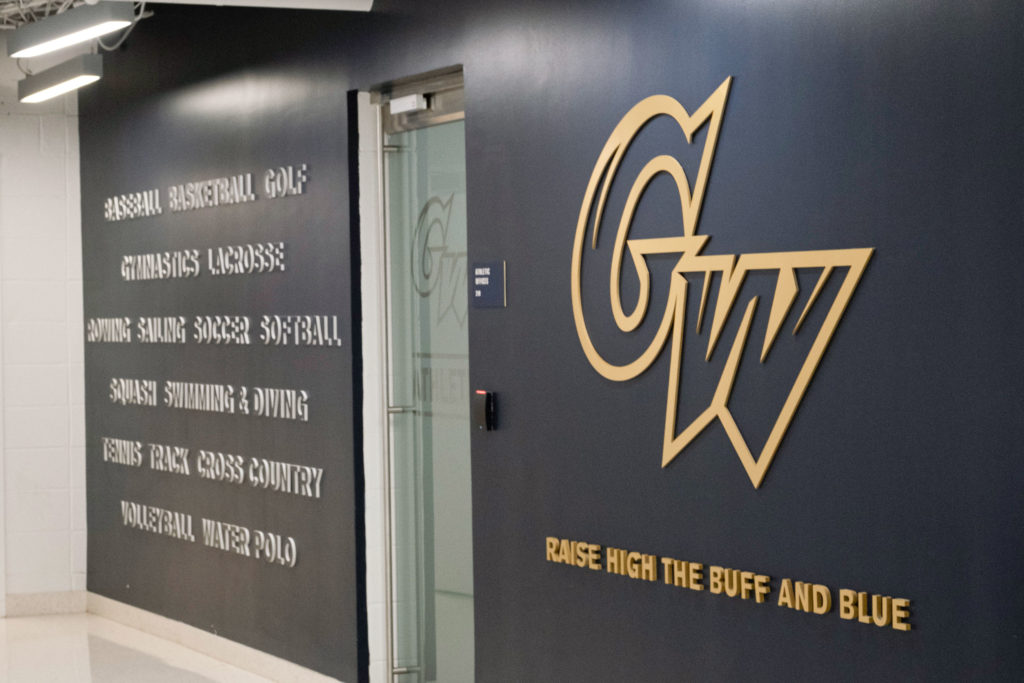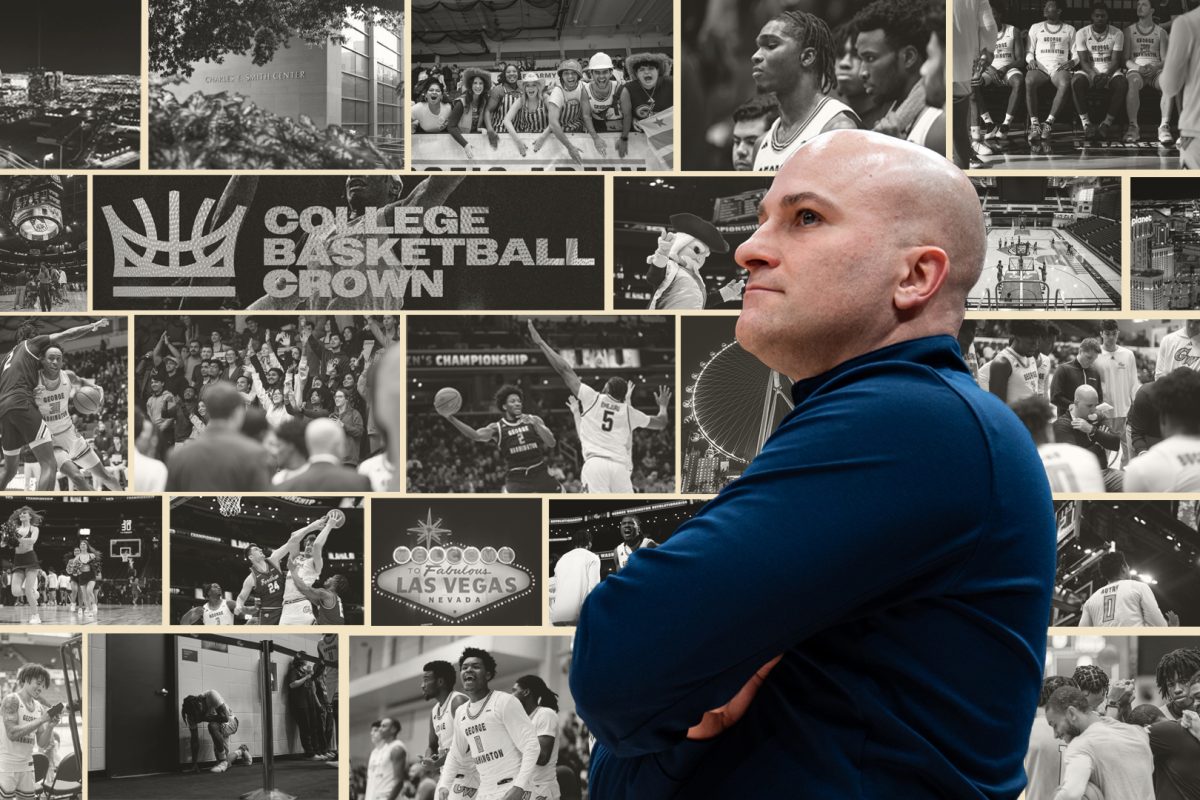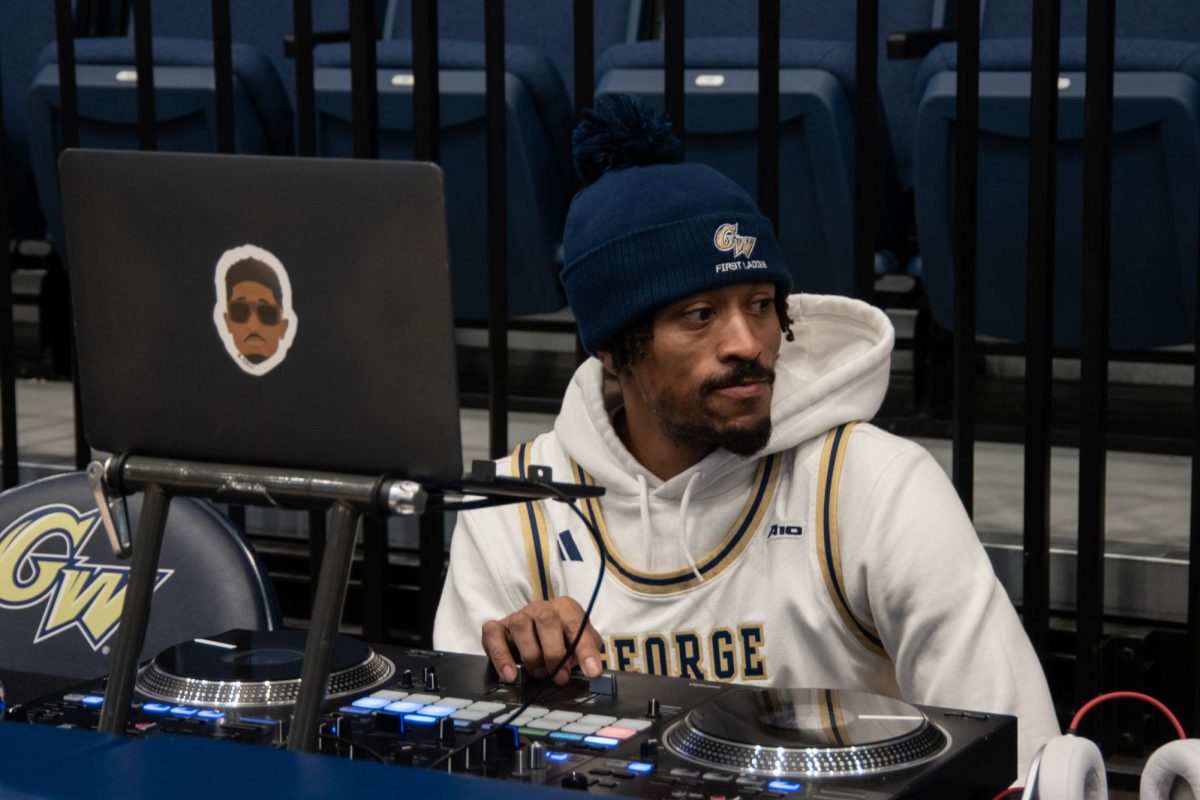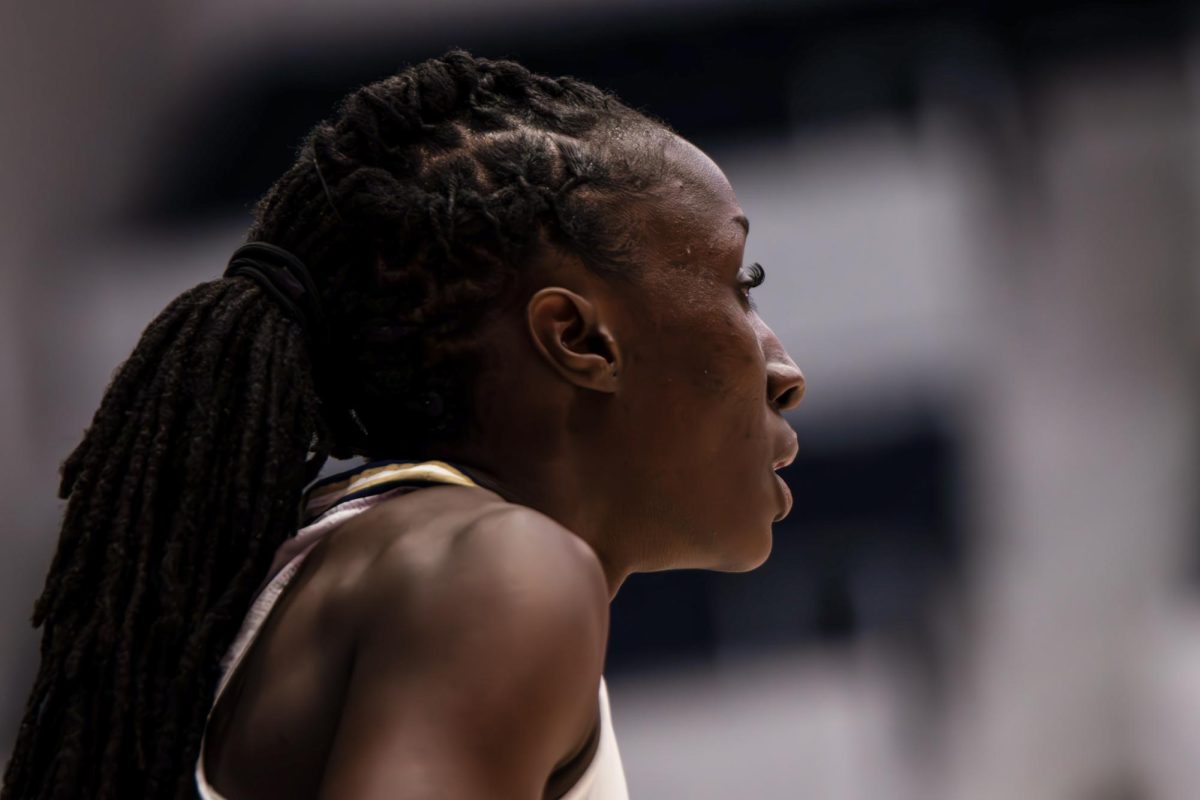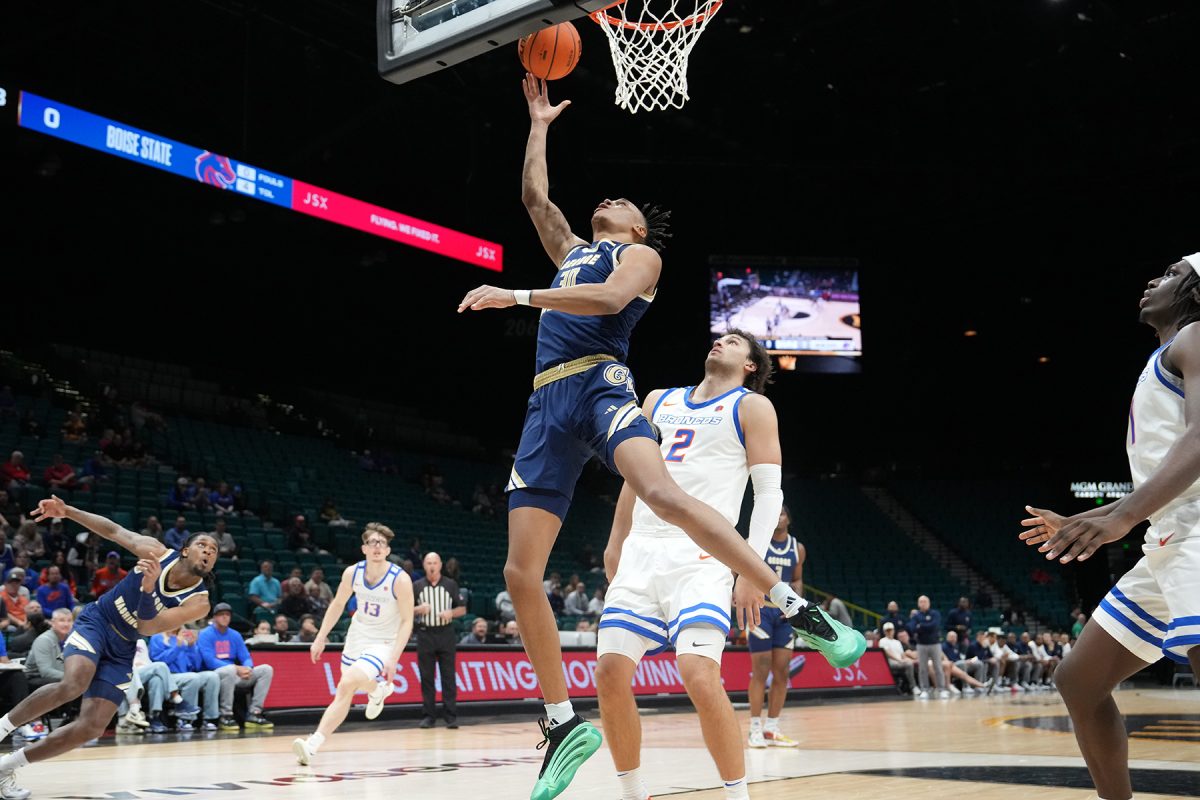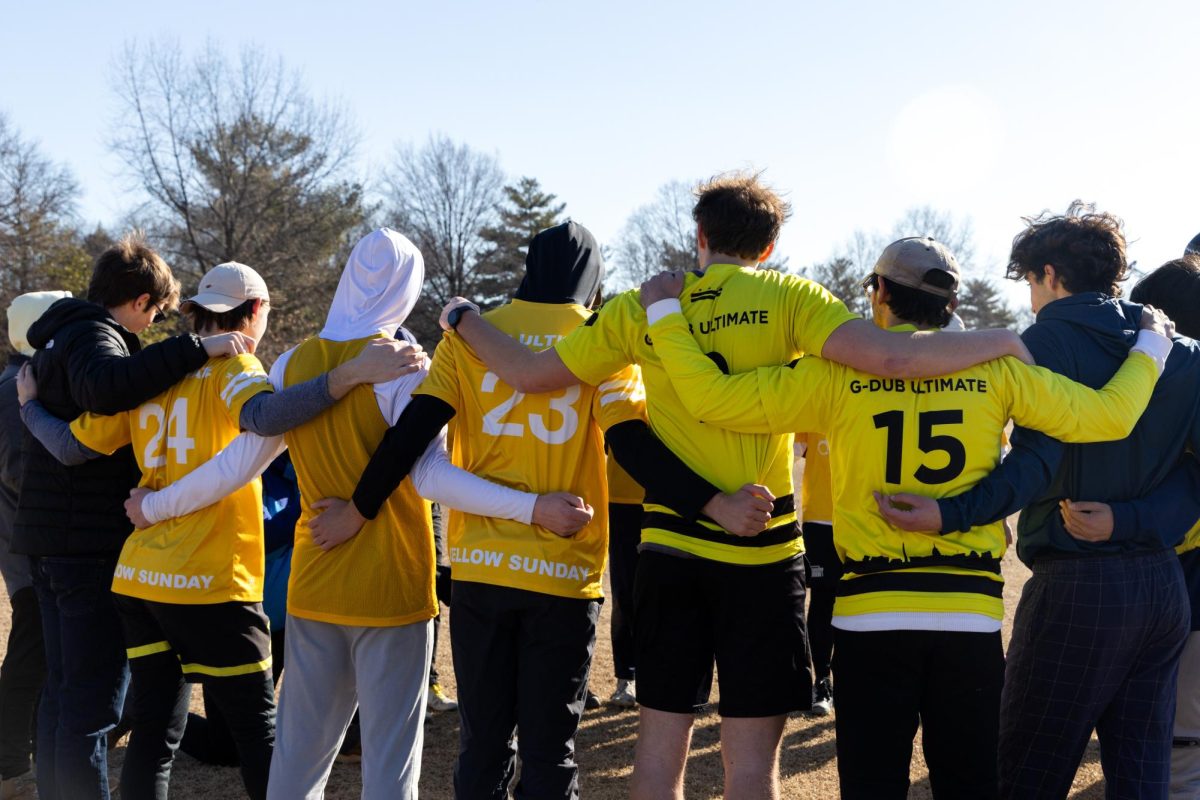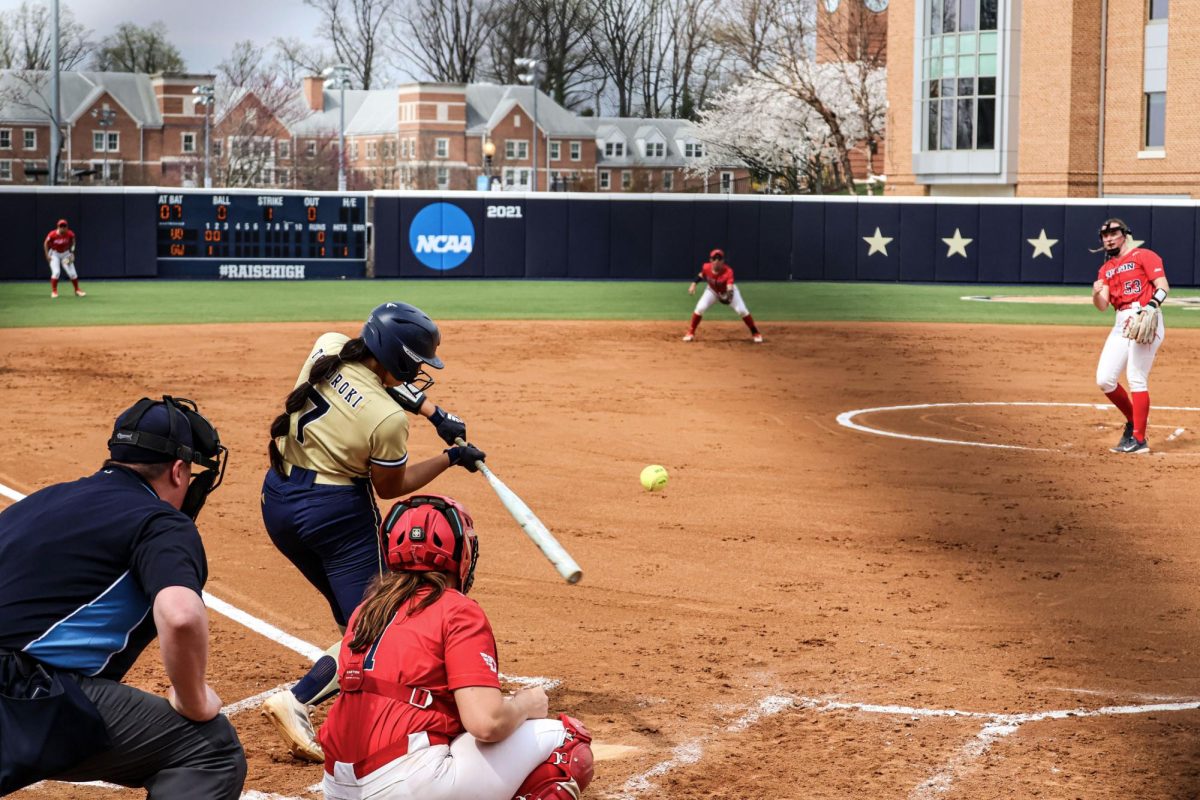The Athletic Department’s Buff and Blue Fund Challenge raised more than $350,000 this calendar year as officials have completed the challenge for the first time since 2019.
Officials said in a release last month that the fund racked up donations from more than 1,200 donors after officials paused the program the last two years because of the pandemic. Associate director of development Danielle Grobmyer said 426 of the donors were former athletes while more than 200 were parent donors.
“It just goes to show how important our alumni are, and our student athletes, parents and then also our friends and family,” Grobmyer said. “Like everyone says, it takes a village and this is a prime example of so many different groups coming together to unite under GW Athletics and show how strong we are and show what a force we are.”
Last year’s fundraising campaign, Together We Raise Higher, which was created to help student-athletes deal with the effects of the pandemic, accumulated $136,764 from 376 donors. In the last version of the Buff and Blue Fund Challenge held in 2019, the fund raised $166,521 from 849 donors with the help of Michelle Rubin, the president of the advisory council for GW Athletics.
Baseball and men’s water polo obtained the most funding in their respective divisions for the challenge, earning $7,000 each, and men’s rowing and gymnastics received the second most, winning $3,000 each. Women’s basketball and men’s cross country and track took home the Most Improved Teams awards along with $2,500 each.
Grobmyer said the fundraising campaign is typically launched in the spring, but this year the department decided to begin fundraising in September to capitalize on the beginning of the fall season. She said the challenge drew in more than 1,100 donors in the first week alone, partially as a result of its postponement over the last year.
She said this year’s challenge was moved to a new platform called GiveCampus, which the University began using for its first-ever Giving Day, which raised a total of $969,993 from 2,182 donors on April 7. She said the department has also conducted a “micro-campaign” for baseball that brought in revenue for the team.
“We knew that the platform would really help elevate it, and it certainly did,” Grobmyer said. “And the great thing about GiveCampus is that when you make a gift, you instantaneously see that number change. And so I think that really is why our donors responded.”
Grobmyer said virtual operations during the pandemic worked to the department’s benefit because it was able to connect alumni with coaches more easily, holding more than 50 different virtual events between March 2019 and September 2021 among the different teams and their alumni to initiate engagement. In previous years, the challenge just targeted student-athlete families and student-athlete alumni, but this year the department opened it to everyone.
This year Rubin donated $20,000 in additional funding for the athletic programs. Grobmyer said the funds will be allocated to the winners of the Buff and Blue Challenge to be used at their discretion.
Men’s water polo came in first place while gymnastics finished second in Highest Student-Athlete Alumni Giving Percentage category. As a result, men’s water polo will be awarded $5,000 while gymnastics will win $4,000.
Gymnastics and water polo also topped all programs in the category of most dollars raised. This time gymnastics came in first and men’s water polo placed second. Each team will be awarded an additional $3,000 and $1,000 respectively.
While men’s water polo and gymnastics have typically done well with fundraising. Grobmyer said the lacrosse program has “stepped up” over the past two years with the help of head coach Jennifer Ulehla and the student-athletes improving alumni engagement.
This year their work paid off as lacrosse came in first place in the most donors category, followed by baseball in second. Lacrosse and baseball will be given the remaining $4,000 and $3,000 for their programs.
Jason Pappas, an associate teaching professor in the Department of Sports Management at Florida State University, said the challenge pointed toward alumni from less professionalized sports as being more open to donate.
“If you’re a student athlete in a sport that typically doesn’t have opportunities to play professionally, they’re more likely to take advantage of all the other things that they have available to them to be able to help them in their career,” Pappas said.
Pappas said institutions usually focus on high-profile alumni that can give back a high amount to the university. He said athletic officials at Florida State concentrate on providing special tickets or privileges to the alumni in exchange for donations.
“I think it’s pretty neat to see that the alumni were so excited to want to give back to a sport into an institution that took care of them so much, that they capitalized how important their sport was, even though those student athletes weren’t able to participate in sport during COVID,” Pappas said.


